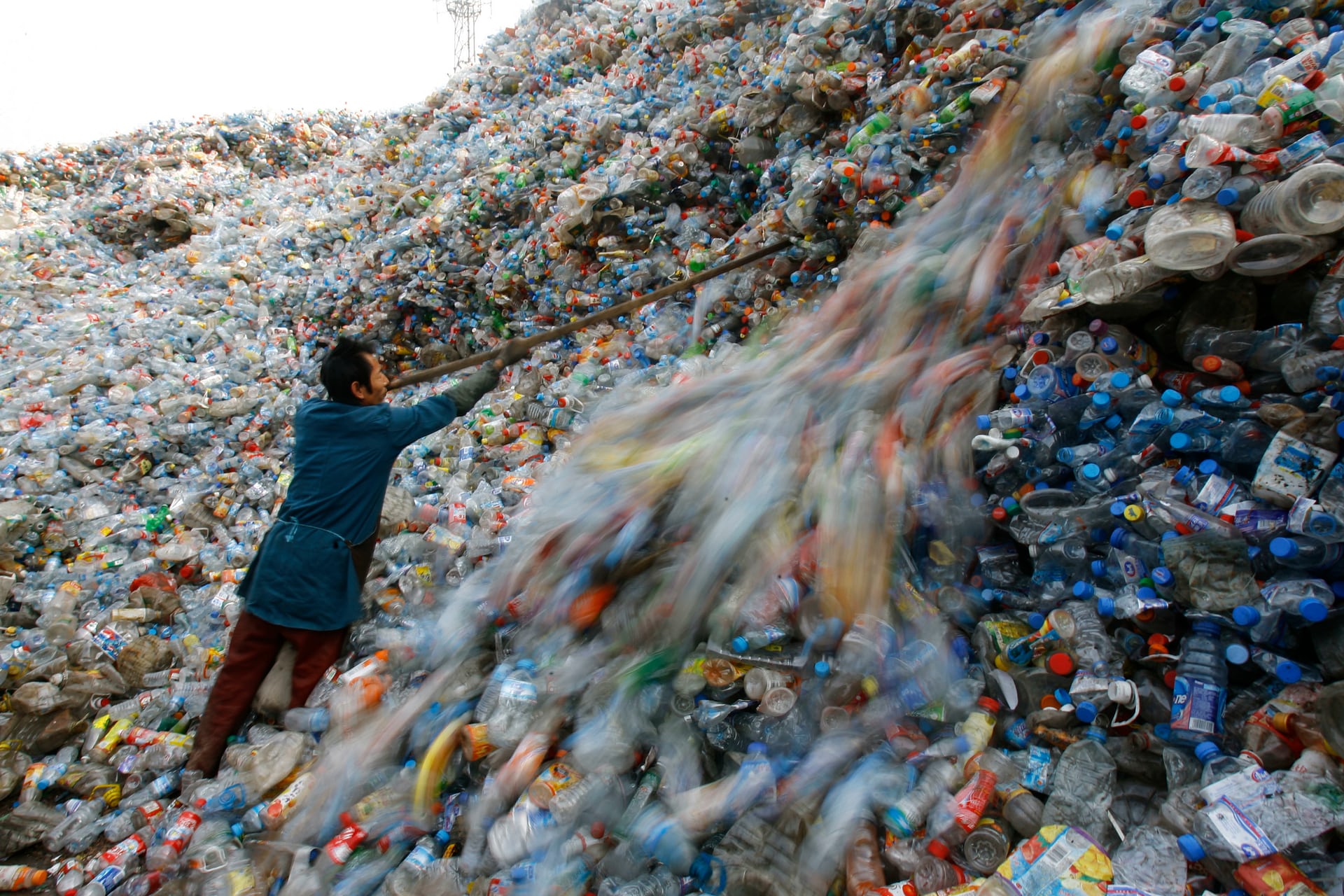Standing on this beautiful black sand beach in South Iceland, all I want to do is take it in and feel as if I'm in a dream world. But it soon hits me that the reality is far from this romantic ideal. Plastic. Everywhere I look, there's plastic waste littering the entire ocean shore. “It comes from the sea,” the locals explain to me. “From the cruise ships and fishing boats, mostly. They just throw it into the ocean and it eventually washes up here.” I cringe at the thought. Plastic waste has been a huge pain point for our planet for a few decades now, and it finally sunk in for me how big the issue really is.
Words: Johanna Raudsepp
Plastic bottle littering Iceland's ocean shore / Photo: Author's own
Nowadays, we seem to put everything in plastic. From plastic bags and bottles to individually wrapped potatoes (yes, it’s a thing), the plastic trend, which started about 60 years ago, doesn’t seem to be going anywhere. The Guardian reports that the human population produces approximately 20,000 plastic bottles per second: that adds up to a whopping half a trillion bottles per annum. And I want to highlight this number for you, because just wording it doesn’t seem to be enough: 500,000,000,000! That’s a massive amount per a humankind. And that’s only the bottles. We are so used to seeing plastic, we don’t think about it anymore.
As I was standing there on the scenic shore of the Atlantic ocean, it dawned on me that we truly need to call for a change. Not only does this plastic end up on the shores, it contaminates the whole hydrosphere. It contaminates it by blocking off sunlight and airflow in the ocean - the living environment for a vast variety of species. When broken down, plastic is easily consumed by sea-life, which ultimately ends up on our tables. A study by Lisbeth Van Cauwenberghe and Colin R. Janssen published in the Environmental Pollution journal states that: “[...] the annual dietary exposure for European shellfish consumers can amount to 11,000 microplastics per year,” We are literally eating plastic. And being vegan, or vegetarian, won’t save you. Plastic waste is something that affects us all.
"The Guardian reports that the human population produces approximately 20,000 plastic bottles per second: that adds up to a whopping half a trillion bottles per annum."
A worker sorts out plastic waste / Source: The Guardian
Laura Parker recently reported in National Geographic that 91% of plastic does not get recycled at all. In fact, 79% of it ends up in a landfill. In a landfill, it eventually breaks down, but the chemicals from plastic mixed in with all the other junk that’s thrown into landfills results in nasty gunk called leachate. Leachate leaks out from the landfill, ultimately, polluting the groundwater. And once in groundwater, it easily reaches every aspect of our lives. Tap water for washing and cooking and/or drinking, down to the vegetables we grow in soil, and eventually to our oceans. You can call me a hateful person, but I would go as far as to say, we deserve it. If we pollute the Earth, it’s more than logical that it in turn pollutes us. However, if we want to stop this vicious cycle, we need to start by changing our plastic consumption. There’s no “I’ll do it tomorrow”. The change needs to start today.
"If we want to stop this vicious cycle, we need to start by changing our plastic consumption. There’s no “I’ll do it tomorrow”. The change needs to start today."
Decomposition time for ocean waste / Source: Rollingharbour.com
There are many ways of changing how we live and consume. I have been lucky enough to be surrounded by eco-conscious people who are always keen to teach their tips and tricks for reducing plastic waste. Here’s 5 simple tricks I have gathered:
1. Invest in a good quality canvas bag for shopping. It is strong and will last you a long time.
2. Buy fresh fruits and veggies from the farmer’s market, if possible. If not, purchase them without plastic in any case. I have seen some people using the good ol’ net bag for vegetables. Simple and, again, reusable.
3. Sort your bins. Don’t mix plastic with plant matter or paper, so that these things get disposed of properly, and don’t end up in a landfill together.
4. Set a good example by not littering. And if it’s not too far beyond you, pick litter up. I don’t expect you to pick up every disgusting piece of rubbish, but for example, if you see someone throwing a candy wrapper on the floor next to the bin, just pick it up and junk it in.
5. Find product alternatives in reusable or sustainable containers. Like glass jars. You can wash the jars (the labels come off quite easily in hot water) and use them for storing something else (like rice or pasta). And invest in some good quality glass or BPA-free containers for your home.


